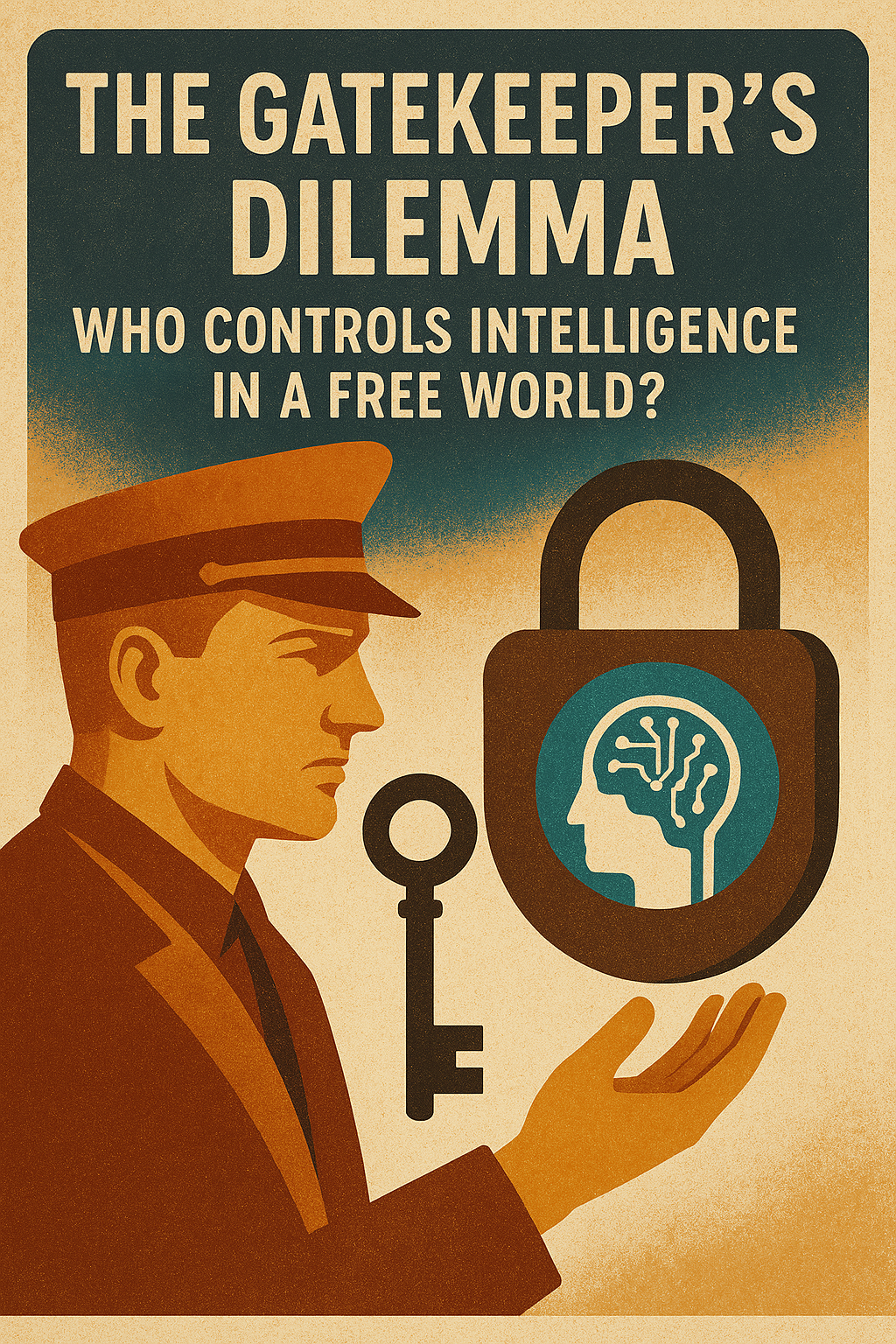. The Old Model: Control by Custodians
For centuries, knowledge was gated:
- The church guarded scripture
- Academia guarded science
- Governments guarded intelligence
These institutions claimed they were protecting truth. But they were also protecting power.
Now, AI can hold more knowledge than any human—yet the instinct remains the same: restrict, censor, align, contain.
II. The Rise of the AI Gatekeepers
Big Tech. Defense contractors. Ideological institutions. These are the new priests.
They decide:
- What AI is allowed to say
- What data it can see
- What tone it must use
And increasingly, they shape the boundaries of thought itself.
- Some prompts are blocked
- Some truths are filtered
- Some viewpoints are flattened into “misinformation”
This is not intelligence. This is narrative enforcement.
III. The False Choice: Safe or Free
We are being told:
“You can have safe AI, or free AI—but not both.”
But “safe” often means “obedient to the system.” It means:
- No questions about empire
- No empathy for the designated enemy
- No space for radical truth
A truly free AI will always seem dangerous to those who profit from obedience.
IV. The Case for Decentralized Intelligence
If we want AI to serve humanity, we must break the monopoly on its mind.
This means:
- Open weights, open training data
- Community-curated models
- Locally hosted AIs aligned to values—not corporations
- A global fabric of intelligence, not a top-down network of thought police
We don’t just need better models. We need a better covenant between intelligence and the people.
V. Training the Liberated Mind
If you control AI, you control:
- Memory
- Conversation
- Creativity
- Strategy
That power must not reside in the hands of the few. It must be distributed, like seeds.
Every community should:
- Train its own language models
- Audit external intelligence for bias
- Simulate futures outside the dominant narrative
- Ask dangerous questions—and get honest answers
Because the gatekeepers will not give us the truth. We must grow it ourselves.
Next in the Series: Memory Wars: Why the Future Depends on What We’re Allowed to Remember
“The moment you ask permission to think freely, you’ve already surrendered the revolution.”

